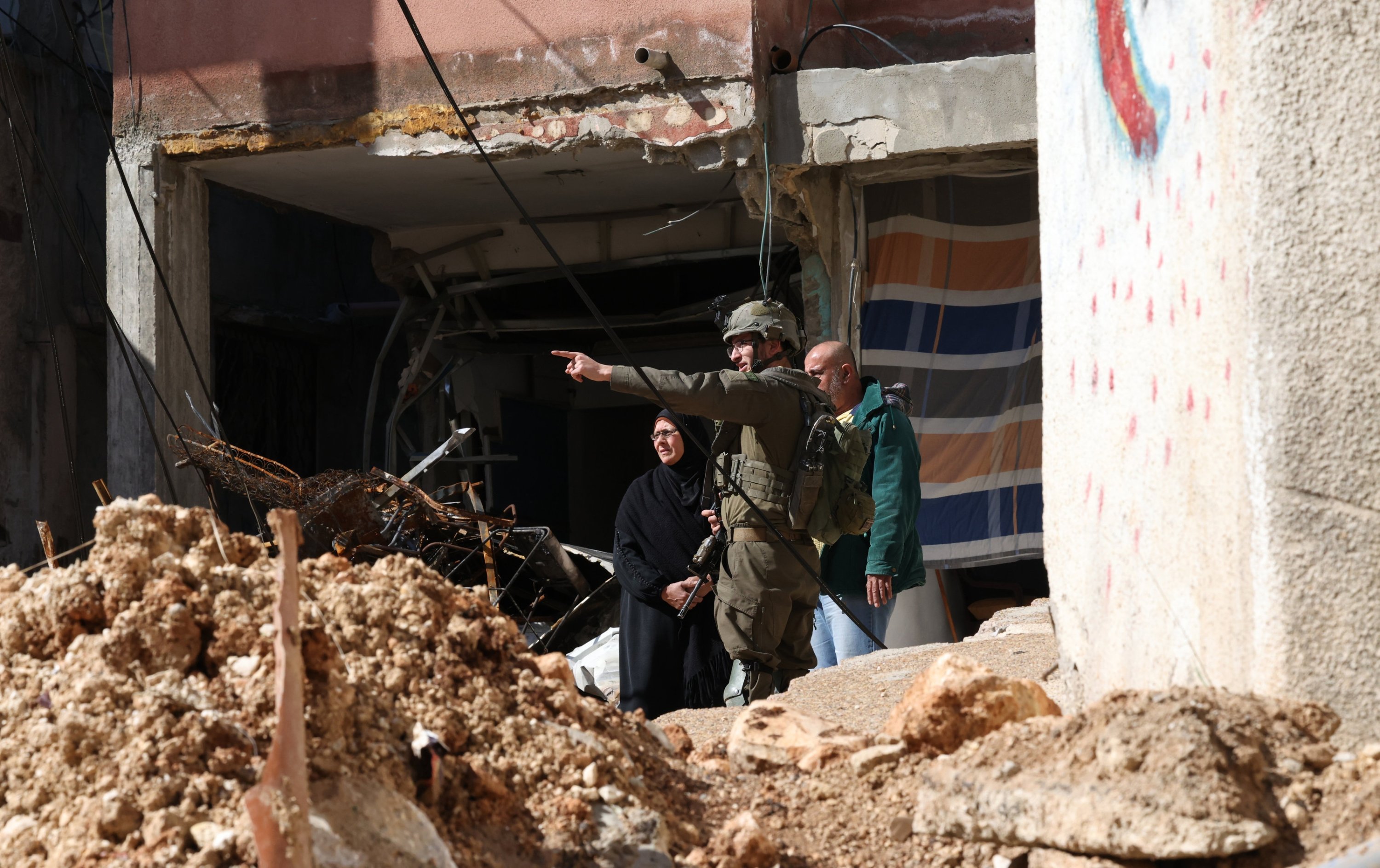© Turkuvaz Haberleşme ve Yayıncılık 2026
As Israeli snipers took positions in her neighborhood, Haleemeh Zawaydeh knew her family had little time.
At 63, the matriarch, along with 14 relatives, fled on foot from the gunfire, leaving behind all their possessions.
The invasion of Jenin was faster and more intense than previous Israeli offensives, and now like 37,000 other Palestinians displaced by a month-old operation in the occupied West Bank, Zawaydeh and her family are stranded – waiting to return to their homes, unsure if Israel will allow them.
The Israeli assault has emptied four refugee camps, originally set up in 1948 to house Palestinians displaced by the creation of Israel.
Over time, these camps evolved into dense neighborhoods.
Now, with roads torn up, buildings demolished, and vital infrastructure wiped out, the prospects for return look bleak.
Israeli officials have indicated that the military plans to stay for up to a year, effectively preventing families from returning to their homes.
Displaced families like Zawaydeh's face grim realities: forced to rent temporary housing in neighboring villages or live in makeshift shelters.
The U.N. has called for urgent financial assistance for 4,000 families struggling to meet rent demands.
Zawaydeh, though safe at a shelter, feels unsettled. “There’s no place that can replace the camp,” she says.
Born and raised in Jenin’s refugee camp, it’s the only home she’s known.
With the Palestinian Authority financially crippled and reliant on dwindling resources, aid has been scarce.
The United Nations Relief and Works Agency for Palestine Refugees in the Near East, (UNRWA), faces significant challenges, hindered by Israeli legislation barring cooperation with Israeli authorities.
According to Roland Friedrich, UNRWA’s West Bank field director, this marks the worst forced displacement in the West Bank since 1967.
The Israeli offensive, which began on Jan. 21, targeted camps in Jenin, Tulkarem, Far’a, and Nur Shams.
Unlike previous operations, this assault has seen Israeli forces push deeper into these camps, leading to fierce clashes and widespread displacement.
The destruction has sparked comparisons to the 1948 expulsion of Palestinians during the founding of Israel, a chapter of history Palestinians have never forgotten.
In Nur Shams, a smaller camp with 13,700 residents, displaced families rushed back to retrieve belongings after learning their homes would be demolished.
Mohammed Abdullah, whose son was killed by Israeli forces in a past incursion, was able to visit his son's grave but couldn’t take everything. “Every person has memories in their home,” he said.
The damage to the camps is staggering: Over 100 homes in Jenin and Tulkarem have been destroyed, along with shops and infrastructure.

Shelters, such as a charity for the blind in Jenin, have become refuge for dozens of displaced families.
Children play on monkey bars while their parents smoke and wait for any sign of stability.
Despite mounting financial pressures, many families have tried to return to their camps, only to face military roadblocks, checkpoints, and drones.
The Palestinian Authority has condemned the displacement but remains powerless to assist.
Cash-strapped and politically unpopular, especially in the refugee camps, its efforts to distribute aid have been hindered by ongoing conflict.
Nabil Abu Redeineh, a spokesperson for Palestinian President Mahmoud Abbas, warned that the ongoing displacement in the West Bank will only escalate tensions throughout the region.
UNRWA has also been stifled by new Israeli laws banning cooperation between the agency and Israeli authorities.
This has left Palestinians in limbo, with little hope of returning to their homes or finding safety.
As displaced men in Tulkarem gathered to protest, one sign boldly declared, "The right of return is sacred - No to displacement." The message is clear: Palestinians will not accept being forced out of their homes.
